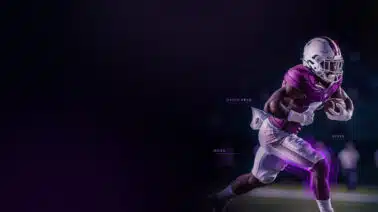Every significant achievement has a story behind it. That’s why we call them success stories! Our personal success stories are an important asset when it comes to career advancement. But while we’re often quite good at highlighting our successes, we’re not always so good at telling the stories behind them. However, it’s often the “story”—and our ability to tell it well—that ultimately sets us apart from the crowd.
Tip: It’s called a “success story” for a reason! Succeeding is not enough, you have to tell the story too!
Recruiters and hiring managers face crowded fields every day, and often the candidates they’re reviewing have very similar skills. So they look for other differentiating factors. In addition, these same recruiting teams often don’t have the same technological knowledge as the candidates they’re reviewing. So again, they look for something that does resonate with them. Finally, it isn’t just about skills. There’s more to being the right candidate than that. So what else is there?
Tip: Recruiters and hiring managers are looking for something that resonates directly with THEM!
Call it passion, call it drive, call it motivation. It’s not what you’re skilled at, it’s why and how you learned those skills. And it’s not what you built, it’s why and how you built it. What’s the story behind the success? What this all leads to is the most important factor of all: you. It all comes down to individuality. What makes you you, and why does that matter? Answering this question is what telling your personal story is all about, and it’s one of the most important things you’ll need to do if you’re to win over a recruiter and land your dream job.
Tip: Skills don’t set you apart. Why and how you mastered those skills does!
Is telling your own story a skill? You bet it is! And, it’s a learned one. And, it’s arguably the most overlooked yet most important skill necessary to getting hired. But most people don’t learn how to do it. They don’t study it, they don’t practice it, and they don’t get good at it. And often, they don’t get hired accordingly.
We’re going to change that.
Tip: Storytelling is a learned skill!
If you’re familiar with the term Personal Branding, then you probably know where we’re heading here. The idea is fairly simple when you break it down. Start thinking of yourself as a brand, and then start asking yourself what you want people to associate with you when they think of your “brand.” As a simple example, consider the difference in the public’s mind between Apple and Microsoft!
The question is, how do you establish your personal brand? It’s a complicated process, and involves many interlinking influences and factors, but storytelling is one of the most important processes you must master if you’re going to “own” your story. Now, of course you’re not actually a brand, and you’re trying to get hired, not sell a product. But the role storytelling plays is the same. When recruiters discuss your candidacy, they’ll have already checked off on skills mastered, projects completed, previous positions held, etc. They’ll be on to more intangible matters. They’ll be evaluating everything from your passion and your work ethic, to your values and your goals. They’ll be reviewing the chronology of the journey that brought you to them, and determining whether their organization is the next step on your path.
For a great resource on Personal Branding, please check out The Complete Guide To Building Your Personal Brand by Neil Patel and Aaron Agius. It’s excellent, and in addition to what we’ve discussed here, it covers things like audience targeting, outreach, and mentor relationships.
Tip: Personal Branding is about associations. What characteristics do you want people to associate with you, when they think of you?
To summarize, you need to know how to communicate about yourself with passion, individuality, clarity, and distinction. And not just in person. In written form as well. Good recruiters will research you. They’ll look up everything they can about you. And you know that. So of course you worked on your LinkedIn and your GitHub. But do those pages tell the stories behind the successes? No, they don’t. But a blog can. And that’s what you need to round out your digital footprint, to fully define your personal brand, to communicate your story.
Tip: An interview is in-person storytelling, a personal blog is a written interview!
The technical side of starting a blog is pretty easy. We probably don’t need to cover that here. (For a good article on blogging with GitHub, click here, and for a solid step-by-step guide to starting a personal blog, click here.) But what do you write about? That’s usually where people get stuck. But the answer is simple. Write about what you do. Ok, it’s not that simple. You need to be a little more focused than that. You need to write about what you do, that a recruiter or hiring manager is going to care about. But remember, your blog is an addendum to your LinkedIn and GitHub. It doesn’t replace them. It enhances them. So focus on what those pages DON’T show. Write about ideas you had along the way that you abandoned. Write about what you failed at, and how you overcame that failure. Write about your frustration, and your pride. Write about reviews you got along the way, and how you implemented the critiques. Write about someone else’s work that you looked to for inspiration. Write about how it felt when you finally got something right that had been baffling you before. And write about these things often, in different posts. Why? Because it’s practice! And good storytelling takes practice, just as does everything else you’re good at.
Tip: A personal blog does not replace LinkedIn or GitHub, it enhances them!
Here’s the biggest challenge you’ll face. How do you make the personal professional? There are a great many people who can speak and write professionally, and who can speak and write about themselves professionally. And just about everyone can do the same on a personal level. Because we do it all the time. In emails, texts, on social media. We’re always communicating informally. But how do you reconcile the two? How do you maintain the professional, while enacting the personal? Put another way, how do you write in a personal way, but with a professional agenda? That’s the art and challenge of Personal Branding. Here are some examples of some different approaches taken by different authors. These should give you at least a good starting place for developing your own style:
- Technically focused blogpost: http://paul-jean.github.io/2014/07/22/life-the-react-way.html
- Personal learnings and failures: https://blog.devcolor.org/nobody-knows-what-they-re-doing-42b5c3ee487d#.3qqnn94od
- Motivated by entrepreneurship: https://www.quora.com/Is-it-too-late-for-an-X-year-old-to-learn-how-to-program
- Personal story that inspires others: http://danilocampos.com/2014/01/sneak-into-tech-through-the-back-door-a-hopelessly-limited-how-to/
- Design & business focused: http://www.nina4airbnb.com/
- Interesting social commentary on the job of being a programmer: https://kateheddleston.com/blog/a-modern-day-take-on-the-ethics-of-being-a-programmer
Tip: Personal Branding is all about making the personal professional!
Recruiters and Hiring Managers have a job to do: find the next great employee for their organizations. That’s a really hard job to do. But you can make it a whole lot easier for them. Show them who you really are, as it applies to the role you’re trying to win. You want them to know how you solve problems, overcome challenges, achieve results. You want them to know what excites you, what motivates you, what drives you forward. How you think, how you feel, how you respond.
All of this can be achieved through the writing of an effective personal blog. Even a single personal blog post! Just one. It begins with one. So write that post! Then get some eyes on it, and do your revisions. Once it’s ready, publish it, and promote it. When the stars align, that post will make the difference, and you’ll get the job. Success. Story!
~
For more great career advice, please visit our Career Resource Center!
~
This post was co-written with Christopher Watkins, Senior Writer at Udacity.




